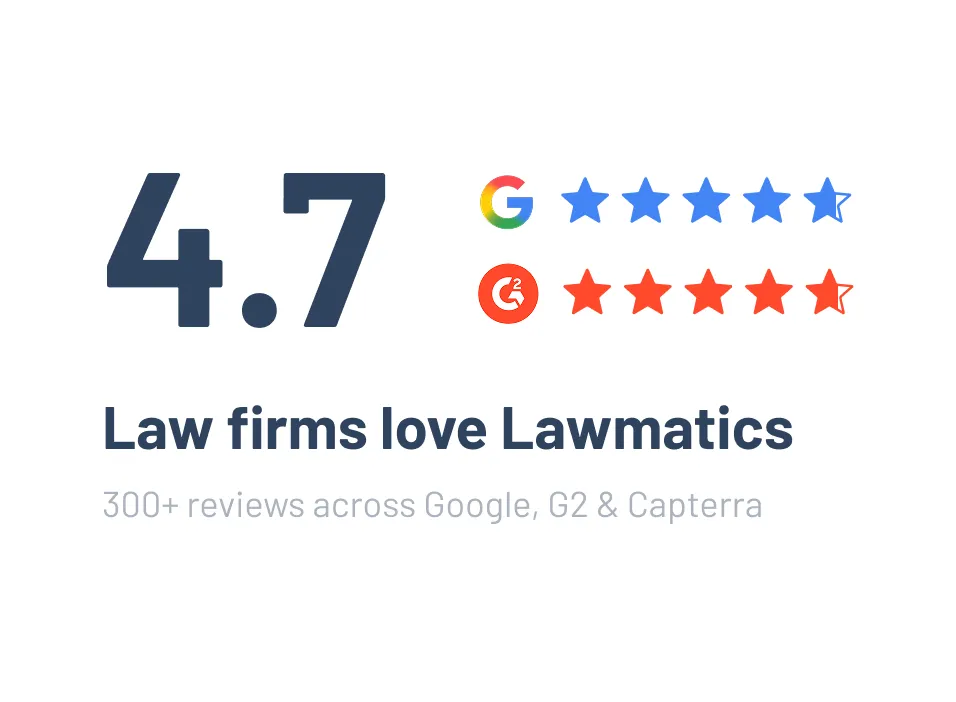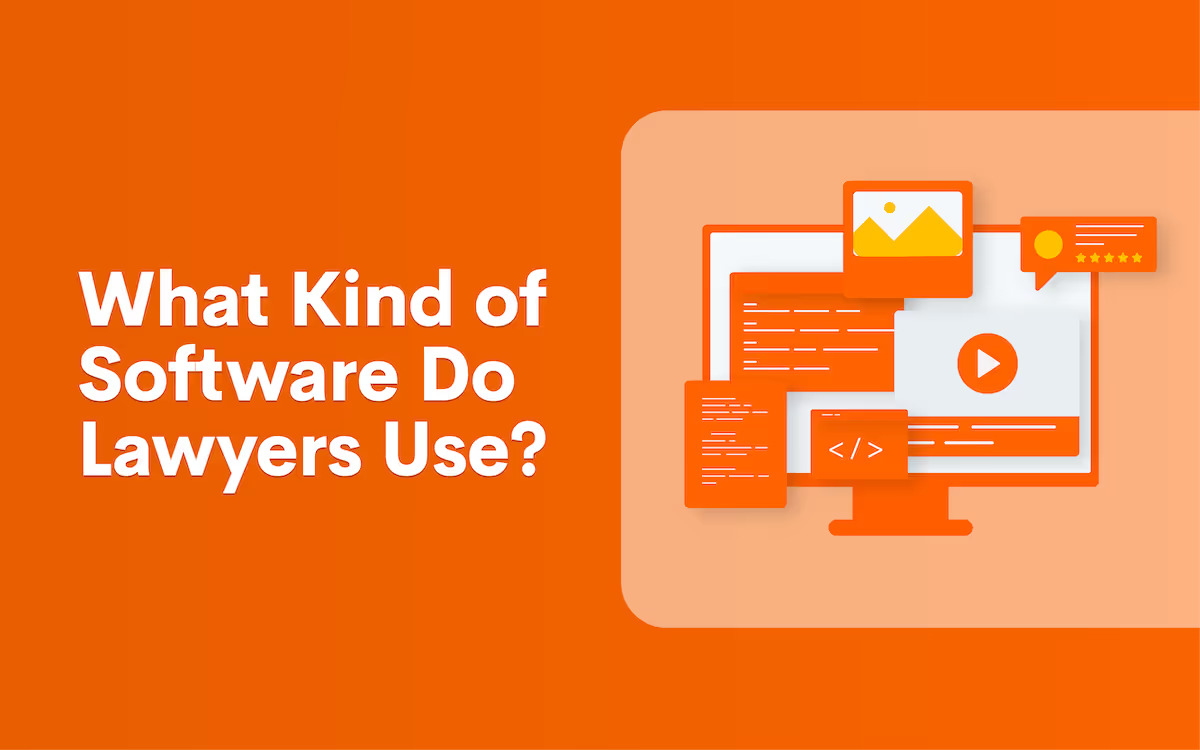Table of contents
Technology can set a law firm up for success or bog down its processes and adversely affect its bottom line. Since the COVID-19 pandemic sparked change and challenges in the legal industry, lawyers are rapidly adopting more technology, such as attorney CRM software, than ever before.Although some thought the shift to remote work would disappear after the pandemic, this has not been the case. According to a new report from the American Bar Association (ABA):
- Approximately 87% of the lawyers who responded said their workplaces allow them to work remotely.
- 44% of the young lawyers surveyed would leave their current positions for a greater opportunity to work remotely elsewhere.
- Almost 2/3 of the private practice attorneys surveyed have the flexibility to choose their own schedule and can work remotely 100% of the time if they want.
- Among women lawyers, 56% reported that remote work increased their ability to balance work and family obligations.
As a result, it’s become more important than ever for law firms to know and provide the things lawyers need—such as legal CRM software. This allows each lawyer to provide legal services the way they choose – remotely, from the office, or a combination of the two. And staying current is one of the good things lawyers do.
What to Consider When Choosing a Software?
Selecting the right legal software is a critical decision for any law firm, impacting efficiency, productivity, and client satisfaction. When evaluating options, consider the following key factors to ensure the software aligns seamlessly with your firm's needs:
- Features. Evaluate the range of tools in a given software that address your firm’s specific needs, such as case management, document automation, time tracking, and billing.
- User experience. An intuitive interface requires minimal training and promotes adoption throughout the firm. Check if the vendor provides training materials, including onboarding, webinars, and ongoing support.
- Scale. Choose a software that can grow with your firm. If you’re just starting your own solo practice, consider software options with a less ambitious scale than enterprise business software.
- Customization. Modern legal software should be flexible enough to cater to your firm's unique workflows and preferences, from customizable fields to adjustable templates.
- Integration. Ensure the software can seamlessly integrate with other tools your firm uses, such as email platforms, accounting systems, and practice management software.
- Security and compliance. Given the sensitivity of legal data, robust security features like encryption, multi-factor authentication, and regular backups are non-negotiable.
- Cost and value. Weigh the cost of a software — including subscription fees, set up charges, and add-ons — against the return on investment of faster processes, better organization, increased bandwidth, and more responsive client service.
- Reviews and ratings. Seek out reviews and ratings from other legal professionals, and consider the most common strengths and weaknesses they identify in the software they use.
By keeping these considerations in mind, law firms can make an informed decision to adopt software that enhances their operations, improves client service, and positions them for future growth.
What tools and technology do lawyers use?
The most successful lawyers and law firms use technology to work more efficiently and securely in an increasingly remote workplace. Here are some of the most common computer software platforms used by today’s lawyers:
- Lawmatics. Law firm CRM software elevates the client experience and eliminates manual tasks with intake automation, digital intake forms, SMS & email campaigns, marketing performance analytics, document request templates, e-signature, and more. Read Lawmatics reviews here.
- Microsoft 365. Software as a service program Microsoft 365 includes essential business tools like Word, Excel, OneNote, Outlook, PowerPoint, SharePoint, Teams, and more.
- Google Workspace. Formerly known as G Suite, Google Workspace provides an array of features, including Google Docs, a word processor similar to Microsoft Word, that is a good option for attorneys whose work requires collaboration.
- Kenect. If text messaging clients directly is essential to the lawyers at your firm, platforms like Kenect will allow you to sync your contacts directly into the system, view a log of text conversations in real-time, and trigger messages based on case status.
- LawPay. Lawyers utilize software solutions like LawPay to send out invoices and facilitate credit card and other online payments.
- RingCentral. All-in-one platforms for voice, video meetings, team messaging, and collaboration like RingCentral are popular with attorneys who favor click-to-dial functionality and one-click video conferencing capabilities.
- DocuSign. In 2000, the U.S. passed the Electronic Signatures in Global and National Commerce Act (ESIGN), making electronic signatures legal in every state and territory where federal law applies. Electronic signature platforms like DocuSign makes document signing faster, easier, and more secure for lawyers and clients.
- Corvum. Voice over Internet Protocol (VoIP) technology offers texting and calling for attorneys in various practice areas, including criminal defense. Corvum uses an internet connection, integrates with Clio practice management software, and is a top choice for attorneys who frequently travel for research or cases.
Lawyers frequently become more efficient, profitable, and client-centered when they use the proper technology.
What research tools do lawyers use?
According to the ABA’s 2021 Legal Technology Survey Report, the typical lawyer spends an average of 21 percent of their time conducting legal research, up slightly from 18 percent in 2020. Here are some of the platforms they commonly use:
- Westlaw. An online legal research service and proprietary database for attorneys and legal professionals, Westlaw is available in more than 60 countries and provides access to case law, articles, publications, court documents, and legal news.
- Lexis Nexis. According to the ABA’s 2021 Legal Technology Survey Report, practicing attorneys in small firms chose Lexis Nexis as the top legal research vendor.
- Fastcase. One of the largest online libraries in the world, Fastcase integrates with Clio to give attorneys remote access to case law, regulations, statutes, constitutional law, and more.
The survey found that 60 percent of the attorneys surveyed regularly use paid online resources for research, and nearly as many (59%) use free online sources.
What does law practice management software do?
Law practice management software is an all-in-one system that helps firms manage day-to-day workflows like calendaring, case management, tasks, time tracking, billing, and accounting within the practice. Cloud-based practice management, such as Lawmatics software, features robust tools to help law firms manage cases, increase revenue, and offer a better client experience.
Benefits of Using Lawmatics Legal Software
In an era where efficiency and client satisfaction are paramount, Lawmatics helps law firms thrive. By leveraging advanced features and automation, Lawmatics equips legal practices to manage daily operations more effectively while positioning them for long-term growth. Here’s how:
- Automated workflows. Lawmatics automates routine tasks, such as client intake and document generation, freeing attorneys to concentrate on complex legal work that demands their expertise. This streamlined approach not only reduces the administrative burden but also speeds up case management. In fact, 91% of law firms surveyed reported increased efficiency after adopting Lawmatics.
- Data-informed decisions. Real-time analytics and comprehensive reporting empower law firms to identify profitable practice areas and target inefficiencies. By understanding these key metrics, firms can make informed decisions that drive profitability and optimize resource allocation.
- Enhanced communication. Automated follow-ups, personalized messages, and client portals keep clients updated and engaged throughout their case. This level of communication fosters trust and satisfaction, leading 80% of Lawmatics users to report having happier clients with Lawmatics.
- Lead management. Lawmatics leads through automated marketing campaigns and client touchpoints, optimizing the client acquisition process. This functionality not only increases the client base but also ensures steady business growth.
By integrating Lawmatics into their practice, law firms can enhance day-to-day operations while building a robust foundation for future growth. From automating mundane tasks to improving client interactions, Lawmatics empowers legal practices to stay competitive, effective, and ready to meet the challenges of an ever-evolving legal landscape.
Lawmatics integrations
Lawmatics law office software seamlessly integrates with some of the most popular software applications that also help lawyers do more of the good things lawyers do (below).
Adopting the Right Software for Your Law Firm
In today's fast-paced legal environment, adopting the right software is crucial for law firms looking to enhance their practice and client relationships. From legal CRM platforms and practice management software to comprehensive research databases, attorneys have a variety of tools at their disposal. These technologies enable lawyers to handle tasks ranging from case management and document automation to time tracking and billing, all while ensuring secure and compliant operations. Additionally, popular communication and collaboration tools–like Microsoft 365 and Google Workspace–facilitate seamless remote work, empowering lawyers to stay connected and productive from anywhere.Investing in the appropriate software not only streamlines routine administrative tasks but also opens doors to more data-informed decision-making and improved client relations. By embracing these technologies, law firms can enhance their operational efficiency, boost profitability, and deliver superior service to their clients. Find out more about how Lawmatics can streamline legal client intake, marketing, billing, and other processes with automation.
FAQs
Q: What software do law firms use?A: Law firms typically use practice management software, billing software, and document management systems to handle their operations efficiently.Q: What is CRM software for lawyers?A: CRM (Customer Relationship Management) software for lawyers helps manage and track client interactions, schedules, and follow-ups to improve client relationships and firm efficiency.Q: Do law firms need a CRM?A: Yes, law firms benefit from CRM systems as they streamline client communications, enhance client satisfaction, and improve overall efficiency.
Ready to grow your law firm with Lawmatics?
Schedule a demo of legal’s most trusted growth platform.









